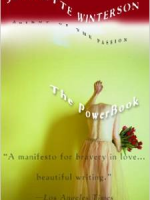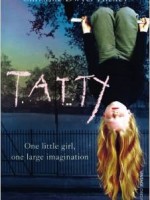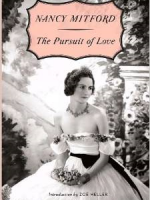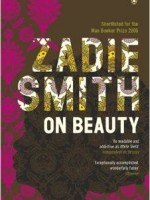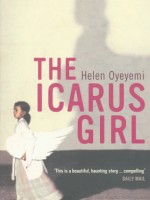Edited by Evelyn Conlon & Hans-Christian Oeser
(Published by New Island)
 |
In his book The Short Story, Sean O’Faolain reminisces about the time he taught creative writing in London. One young man submitted a story about an aristocratic man, living on his country estate who sat in his library quaffing brandy and cigars. When O’Faolain – who knew this young professional had barely left London – asked why he hadn’t written what he knew, the young man replied “What experience have I to tell?” and launched into his daily routine as a bank clerk. O’Faolain, utterly shocked, writes in the introduction: “How could I explain to the poor youth that his trouble was not that for him experience did not exist but that he himself did not exist? That since he had no perception of his own he had no existence of his own?”
In this collection of stories, there is definitely no lack of self-perception. These women are acutely (even they don’t want to be) aware of their existence. As a result, the realism is never in question – each narrative seems like a remembered story or real experience. The best thing about an anthology of short stories is that you get a bit of everything. Each is a uniquely-wrapped slice of fiction all nestling in the same collection, a bit like the literary equivalent of a selection box. Regardless of whether editors put the stories in chronological order (here they’re not) I never read from start to finish, preferring to dip in and out in my own unordered way, picking out an author or story title at random. There are many writers here that we all know, but there are many, young and old, who I’ve never come across.
As you’d expect from a collection like this, there are many Irish issues covered. Politics, the North, rural life, the lot of the Irish woman and even the weather, a perennially Irish topic, features abundantly throughout. If exploring national issues is the backdrop for many of these narratives, it is the more personal stories that impact the most.
The opening story is a powerful one. ‘Nine Years is a Long Time’ by Nora Hault tells the story of a married prostitute, whose husband is complicit in her career-choice. The author was born over 100 years ago so it was a daring tale for that time. It’s a poignant tale that says more about the heroine’s marriage than it does about her morality. Marriage is a theme constantly re-explored and deconstructed here. In Leland Bardwell’s ‘Outpatients’, a young woman is forced to invent more and more reasons for her frequent visits to casualty thanks to a husband who’s rather handy with his fists. In one of the books best stories – ‘Men and Women’ by Clare Keegan, a family disintegrates over Christmas as the gulf between mother and father climaxes at a local dance. ‘A Bona Fide Husband’ by Lilian Roberts Finlay doesn’t even allow years to slip by before complacency sets in – it happens at the end of the honeymoon.
The traditional place of the Irish woman at the top of the domestic pyramid is explored tenderly but never in a sentimental way. In Mary Lavin’s ‘Lilacs’, a widow resolves to keep her husband’s dung business going after his death, much to the disgust of her daughters. Surviving off the land and the position of marriage within society is explored wonderfully in Juanita Casey’s ‘One Word’, a quirky tale of an obstinate ass and two brothers. In ‘Heaven’, Mary Beckett’s heroine wants her life back after years of rearing her children. This desire for a bit of peace is thwarted by her husband and her sons, scrambling for a babysitter.
There is more than one homage to the hard-working matriarchs of Irish households, but plenty of those lives were thwarted by ennui and claustrophobia. Editor Evelyn Conroy’s own story ‘Park-going days’ is a moving tale about the loneliness of motherhood and the cravings for adult company. In contrast is ‘The Stolen Child’ by Clare Boylan, one of the books youngest contributors. A disturbed young woman steals a baby and it doesn’t turn out the way she expected. The younger writers in this collection opt for very young narrators as in ‘Men and Women’ and Sara Berkeley’s ‘Thin Ice’. Northern Ireland politics are explored in Anne Devlin’s ‘Five Notes After a Visit’ but most of the stories by Northern writers go a different route. Marilyn McLaughlin’s ‘Bridie Birdie’ is a superstitious tale of fairies, which sits side by side with Angela Bourke’s ghostly tale ‘Deep Down’.
There are some very personal tales that stand alone, and are some of the best in the book. M.J. Hyland’s captures a father’s alcoholism seen through the eyes of a young daughter in ‘My Father’s Pyjamas’. The child’s incomprehension does battle with fear and love beautifully. In ‘Such Good Friends’ by Ita Daly, a lonely, obsessive wife becomes fixated on a female colleague with devastating results. Edna O’Brien’s protagonist is an independent woman caught up in an affair with a married trade union official. Despite her education and career, she is trapped by the affair.
When I think of the first short stories I read growing up, I mostly remember the bittersweet ones that combined humour and poignancy, like the stories of Frank O’Connor. If there could be a criticism leveled at this book is that it would have benefited from more laughter – as Clare Boylan does with her brand of charcoal humour. That said, Evelyn Conlon and Hans-Christian Oeser have succeeded in selecting a timeless selection that can be picked up, read and reread. The short story as a medium allows a glimpse through a keyhole to someone else’s life and enlightens the reader in some way before the end. These stories are a wonderful example of both.
¹The Short Story by Sean O’Faolain, Mercier Press 1972, p14
